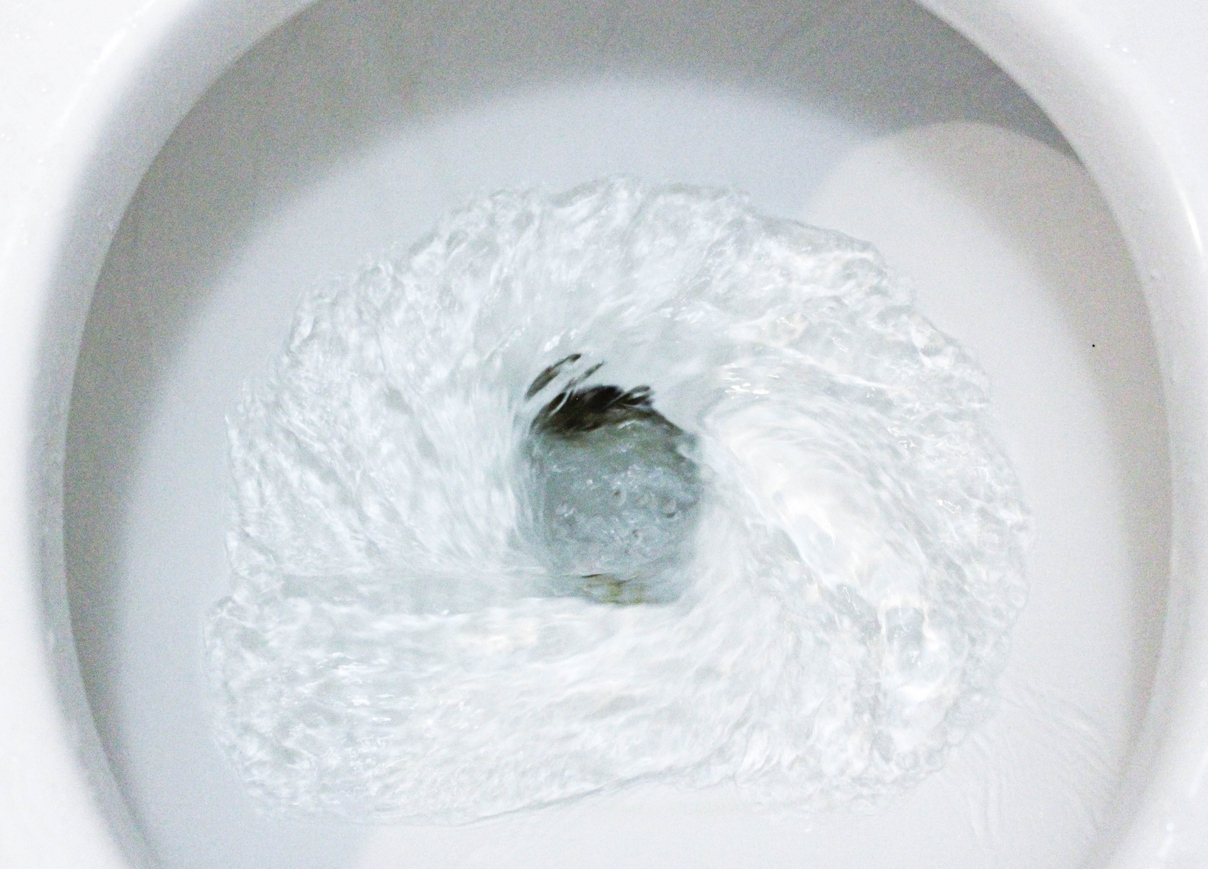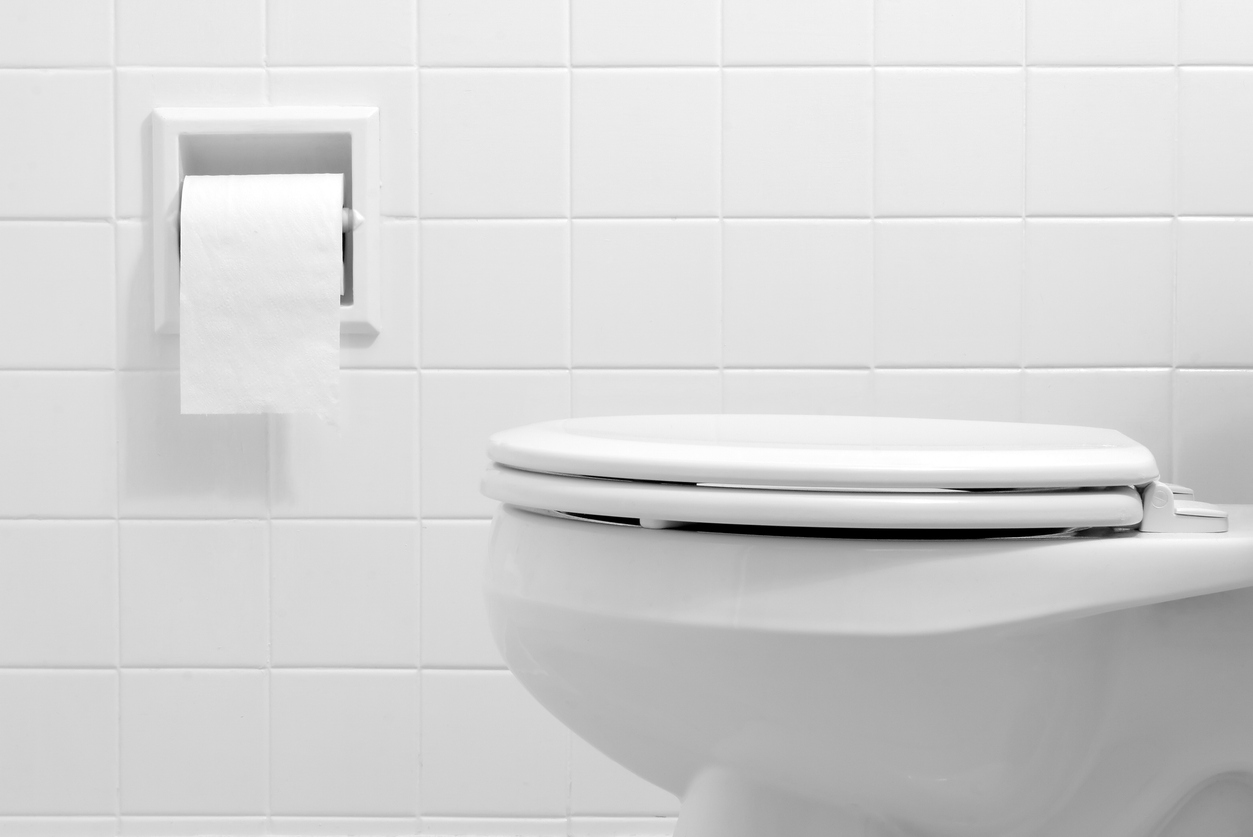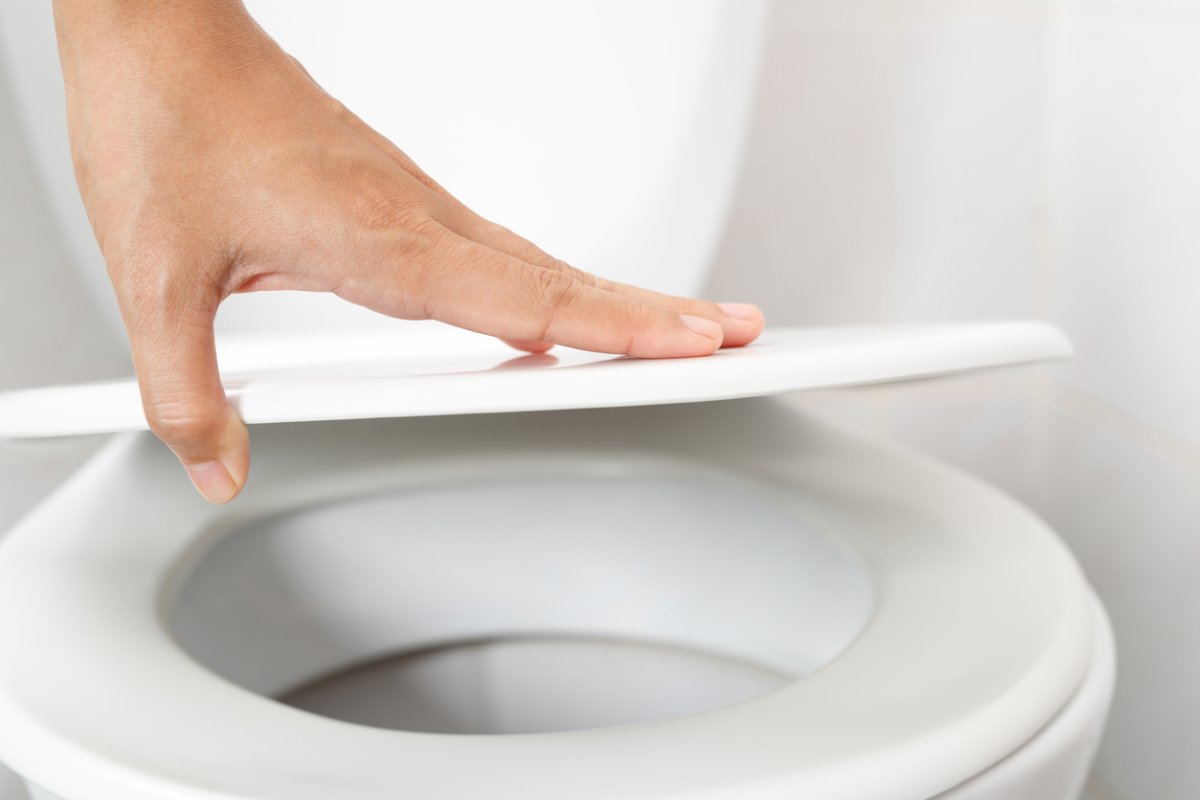We may earn revenue from the products available on this page and participate in affiliate programs. Learn More ›
There are all kinds of genius inventions designed to help us keep our bathrooms clean. But is one of the more permanent fixtures in your bathroom—the toilet—working against your best efforts? While some may think closing the lid before flushing can help keep the bathroom (or any other odd locations where you may have a toilet) clean, others view it as an unnecessary step. Let’s explore what the research actually says and help you keep your bathroom a clean and germ-free space.
Flushing The Toilet Aerosolizes Germs and Sends Them Flying
When you flush a toilet, all the waste doesn’t simply go down the drain. Instead, as Karina Toner, Operations Manager of Spekless, a home cleaning and maid service company serving the Washington, D.C. area, explains that “microscopic water droplets containing bacteria and viruses can be aerosolized and spread into the surrounding air, potentially contaminating nearby surfaces and objects.”
Toner’s explanation is backed by the findings from a study conducted by engineers at the University of Colorado Boulder. Their research, which focused on tankless, lidless toilets, a type of toilet often found in commercial settings, used green lasers to illuminate the droplets that were sent flying into the air with each flush. The engineers found that these aerosolized droplets—which could contain traces of waste and other bacteria in a real restroom—traveled at up to two meters per second and remained airborne for several seconds after each flush.
Flushing a toilet with the lid up clearly has the potential to contaminate other surfaces in the bathroom. When combined with the research from The University of Connecticut demonstrating that hot hand air dryers can spread germs and bacteria, it legitimizes the fears and concerns that some have over using public restrooms.

Unfortunately, Closing the Lid Doesn’t Stop These Germs from Contaminating Surfaces
After reading about the waste and bacteria that can become aerosolized when the toilet is flushed, the logical next step is to make sure that the lid is closed before you flush. However, closing the lid, even on the best toilet, doesn’t seem to be sufficient to stop germs from spreading.
The American Journal of Infection Control published a study in early 2024 that showed that the contamination of bathroom surfaces remained virtually the same whether the toilet lid was open or closed when it was flushed.
University College Cork also conducted a study to assess the effectiveness of closing the toilet lid before flushing. While their study showed that fewer visible droplets were present after each flush, it also found a higher concentration of bacteria in each drop. Moreover, contaminants remained in the air for up to 16 minutes after each flush, instead of closer to the five minutes when the lid was closed.
Ways You Can Reduce the Spread of Germs When Flushing The Toilet
The 2024 study published in the American Journal of Infection Control referenced above conducted further tests to determine the best way to reduce toilet bowl contamination and maintain a clean bathroom.
Researchers found that cleaning the bowl using a brush to be the most effective solution for minimizing cross-contamination of bathroom surfaces. Regardless of whether hydrochloric acid, a commercial cleaning product, was used alongside the brush, the presence of contaminants inside the bowl decreased by 99 percent after brushing.
While use of the cleaning solution didn’t have an impact on the contaminants inside the toilet bowl, it did decrease the presence of bacteria on the toilet brush after each use.

Other Potential Benefits of Closing the Toilet Lid
While closing the toilet lid before flushing may not help keep your bathroom as clean as you would like, it doesn’t mean you should abandon this practice (or not consider taking it up). There are a few other potential benefits to closing the lid you’ll want to consider. These include:
- Controlling bathroom odors: “Closing the toilet lid helps contain unpleasant odors within the toilet bowl, contributing to a fresher and more pleasant bathroom environment,” says Karina Toner of Spekless.
- Preventing items from falling into the toilet: If the lid to the toilet is kept closed, it will be less likely for you to inadvertently drop toiletries, a brush, or any other personal care products into the water.
- Protecting young children and pets: “Closing the toilet lid is especially important in households with young children or pets to prevent accidental falls into the toilet bowl and minimize exposure to contaminated water,” Toner explains.


